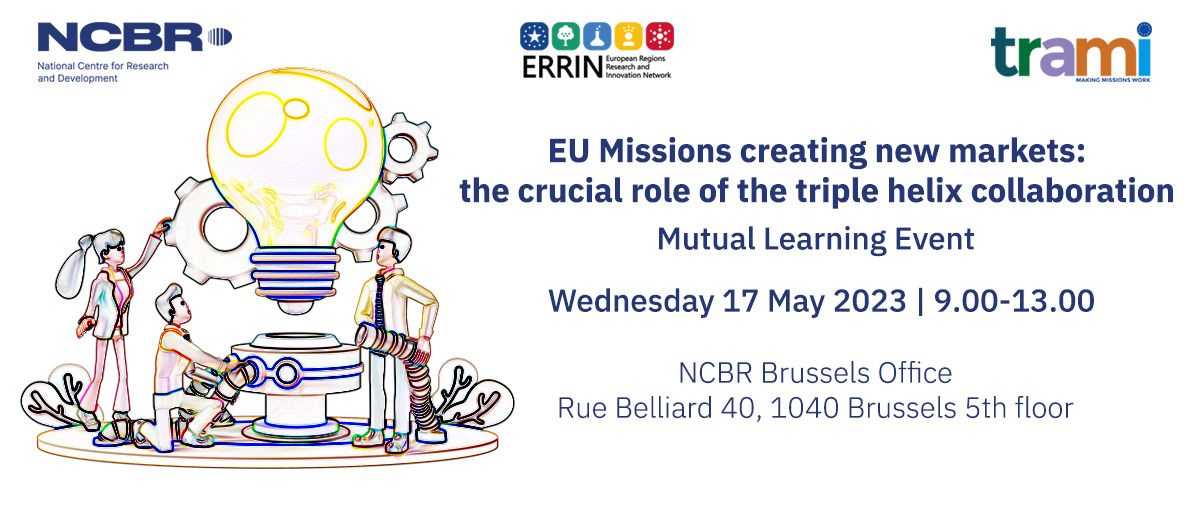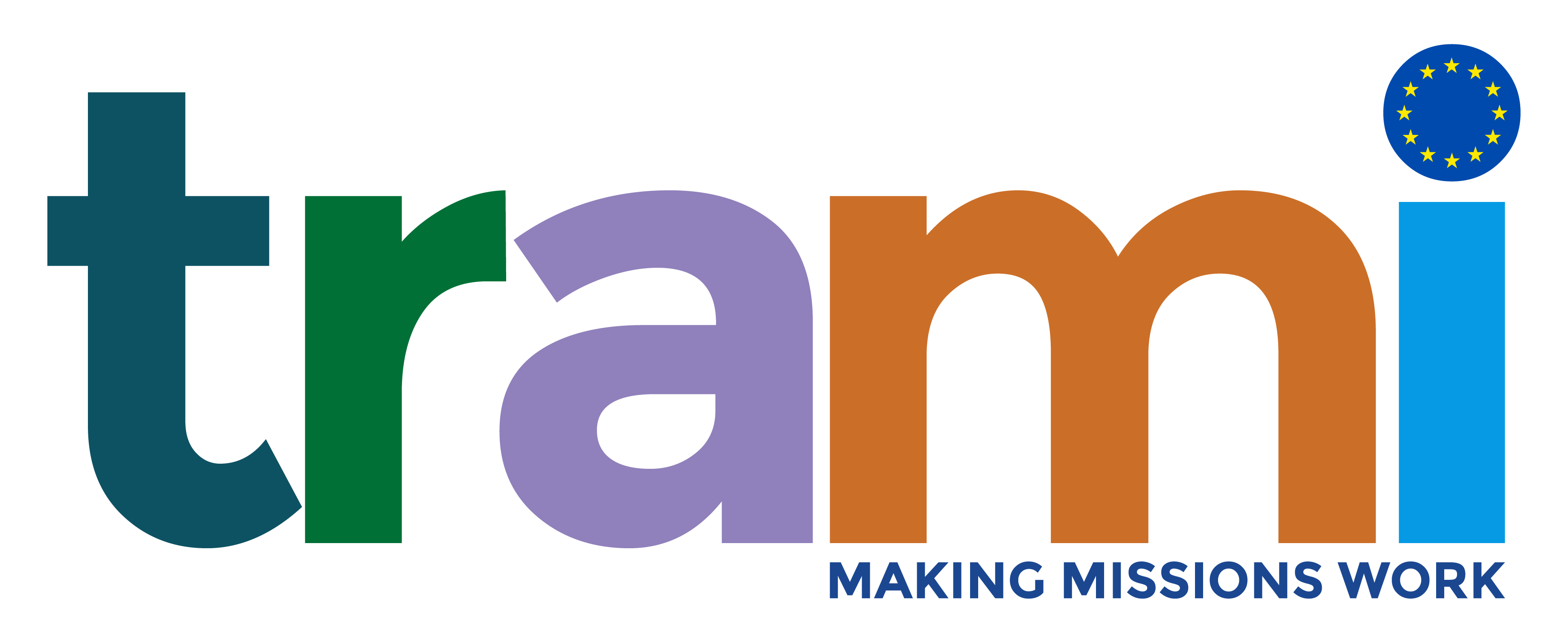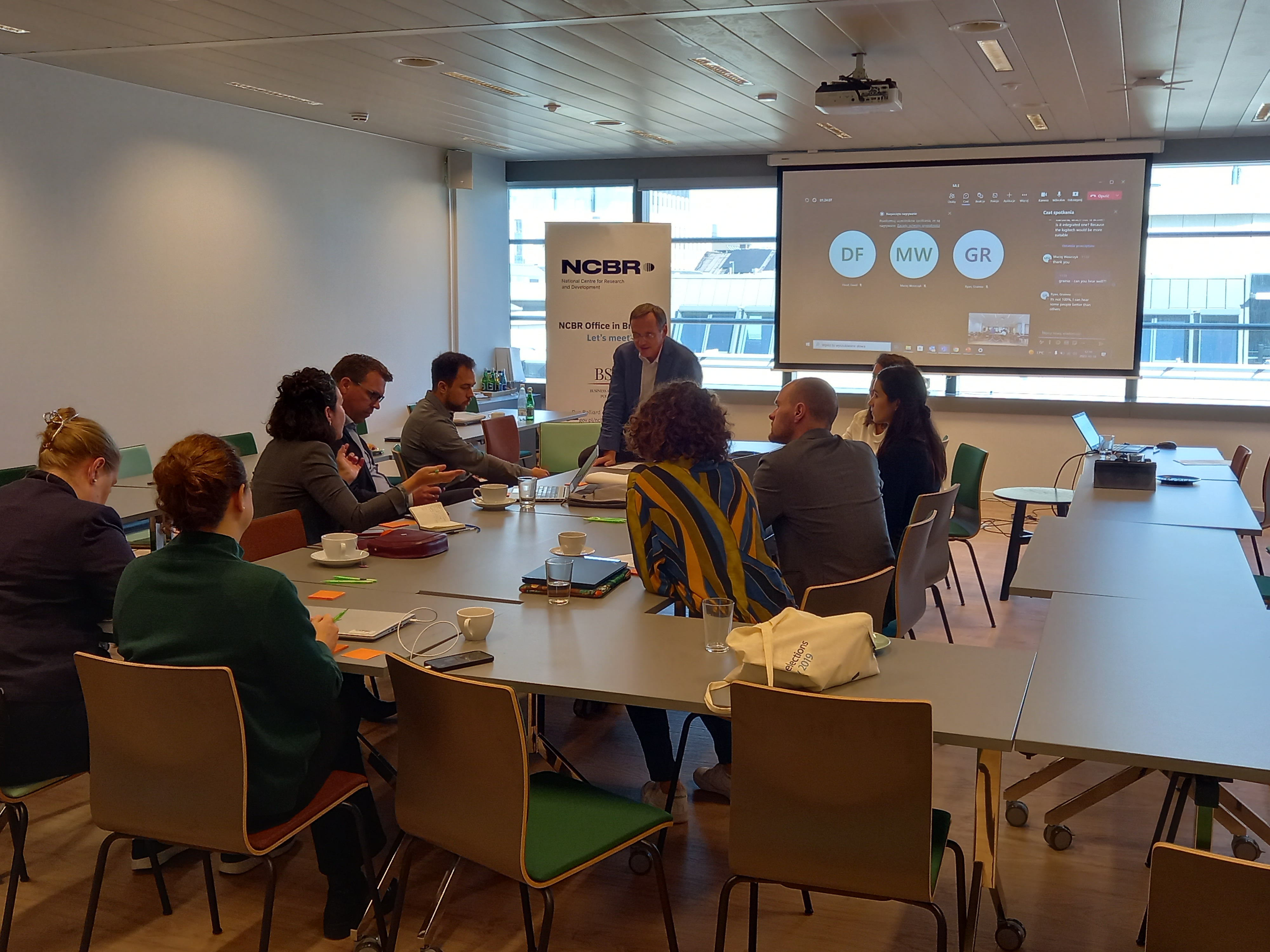
17May
EU Missions creating new markets: the crucial role of the triple helix collaboration
The TRAMI project, in collaboration with ERRIN, is organising a Mutual Learning Event exploring the role of industry, academia and public authorities in achieving the objectives of the five EU Missions through triple helix collaboration. This event offers a unique opportunity for industry, public authorities and academia to discuss how to intensify collaboration and joint action towards achieving the ambitious goals defined by the EU Missions.
The triple helix model of innovation refers to the collaborative efforts of industry, academia and public authorities to drive innovation and economic growth. Each of these actors brings a unique set of skills, resources and perspectives to the table, and working together is essential when tackling complex challenges, such as defined by the EU Missions.
In the context of the EU Missions, the triple helix approach is particularly relevant. The EU Missions are large-scale, ambitious initiatives aimed at tackling some of the most pressing challenges facing society, such as climate change and cancer. Achieving the objectives of these Missions requires a broad-based effort that engages stakeholders from across society. In this context, public authorities have a crucial role in supporting the triple helix collaboration, by creating an enabling environment and providing the necessary framework for collaboration. By bringing together these different perspectives and resources, the triple helix approach can help to identify new opportunities for collaboration, drive innovation and facilitate the adoption of new technologies and practices. It can also help to ensure that the Missions are implemented in a way that is responsive to the needs of different stakeholders and takes into account local and regional contexts.
Agenda
09:00 - 09:30 Registration and welcome coffee
09:30 - 09:45 Introduction to TRAMI and MLE concept
Wolfgang Polt, Joanneum Research
Ewa Kocińska - Lange, National Center for Research and Development
09:45 - 10:00 Tour de table
10:00 - 10:40 Exploring successful triple helix collaborations, Introduction by Pirita Lindholm, Director, ERRIN
Lina Konstantinopoulou, Policy Director, Eurochambres
Olga Wessels, Head of Brussels' Office at ECIU
Wim de Kinderen, Programme Director European Affairs, Brainport Eindhoven
Klaas de Boer, Research, Science, Education and Health Policy Officer, Hanse-office
Q&A
10:40 - 12:00 Creating new markets - discussion in breakout groups
12:00 - 12:30 Wrap up and final conclusion

